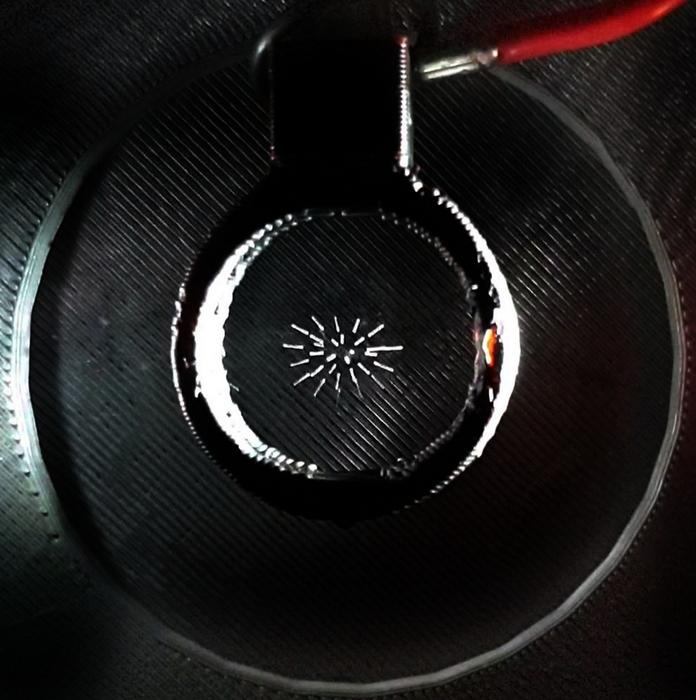Critical insights into why airborne viruses lose their infectivity have been uncovered by scientists at the University of Bristol. The findings, published in the Journal of the Royal Society Interface today [21 June], reveal how cleaner air kills the virus significantly quicker and why opening a window may be more important than originally thought. The research could shape future mitigation strategies for new viruses.

Credit: University of Bristol
Critical insights into why airborne viruses lose their infectivity have been uncovered by scientists at the University of Bristol. The findings, published in the Journal of the Royal Society Interface today [21 June], reveal how cleaner air kills the virus significantly quicker and why opening a window may be more important than originally thought. The research could shape future mitigation strategies for new viruses.
In the first study to measure differences in airborne stability of different variants of SARS-CoV-2 in inhalable particles, researchers from Bristol’s School of Chemistry show that the virus has become less capable of surviving in the air as it has evolved from the original strain through to the ‘Delta’ variant.
Dr Allen Haddrell, the study’s lead author and Senior Research Associate in Bristol’s School of Chemistry, explained: “Aerosol particles, exhaled when infected individuals breathe, speak or cough, can transmit viruses – but how and why viruses lose infectivity once they are circulating around in these airborne particles has been widely debated.”
To conduct the research, the team used a next generation bioaerosol technology instrument that they developed called CELEBS (Controlled Electrodynamic Levitation and Extraction of Bioaerosols onto a Substrate), that allowed them to probe the survival of different SARS-CoV-2 variants in laboratory generated airborne particles that mimic exhaled aerosol. They examined how environmental factors, such as temperature and humidity, particle composition and the presence of acidic vapours such as nitric acid alter virus infectivity over a 40-minute period.
Through manipulating the gaseous content of the air, the team confirmed that the aero-stability of the virus is controlled by the alkaline pH of the aerosol droplets containing the virus. Importantly, they describe how each of the SARS-CoV-2 variants has different stabilities while airborne, and that this stability is correlated with their sensitivities to alkaline pH conditions.
The high pH of exhaled SARS-CoV-2 virus droplets is likely a major driver of the loss of infectiousness, so the less acid in the air, the more alkaline the droplet, the faster the virus dies. Opening a window may be more important than originally thought as fresh air with lower carbon dioxide, reduces acid content in the atmosphere and means the virus dies significantly quicker.
Dr Haddrell added: “Our results indicate that the high pH of exhaled aerosol drives the loss of viral infectivity. So, any gas that affects aerosol pH may play a role in how long the virus remains infectious in the air. For example, bleach gives off acidic vapour that may increase SARS-CoV-2 stability in the aerosol phase. Conversely, ammonia which gives of alkaline vapour may have the opposite effect.”
The findings provide valuable insights into why and how aerosolised viruses lose their infectivity, setting the stage for the design of new strategies to mitigate risk.
Jonathan Reid, Director of Bristol Aerosol Research Centre and Professor of Physical Chemistry in the School of Chemistry at the University of Bristol, and one of the corresponding authors, said: “There are numerous factors that affect the transmission of airborne viruses, and these are often confounded with physical and environmental parameters that can affect viral longevity in the aerosol phase such as temperature, relative humidity, air movement and UV light.
“Our findings broaden our understanding of how environmental factors affect airborne stability of SARS-CoV-2 and other viruses, which will help us design better safety and mitigation strategies to reduce disease transmission. We now intend to explore the role of pH further through studying the role that carbon dioxide has on the risk of SARS-CoV-2 transmission.”
The research was funded by the Biotechnology and Biological Sciences Research Council (BBSRC), the National Institute for Health and Care Research (NIHR)-UK Research and Innovation (UKRI) rapid COVID-19 call, the Elizabeth Blackwell Institute (EBI), the University of Bristol and the PROTECT COVID-19 National Core Study on transmission and environment, managed by the Health and Safety Executive (HSE).
Journal
Journal of The Royal Society Interface
DOI
10.1098/rsif.2023.0062
Method of Research
Observational study
Subject of Research
Not applicable
Article Title
Differences in airborne stability of SARS-CoV-2 variants of concern is impacted by alkalinity of surrogates of respiratory aerosol
Article Publication Date
21-Jun-2023




